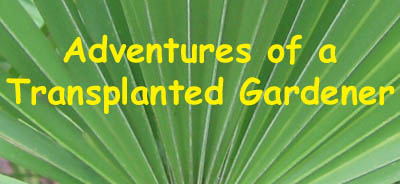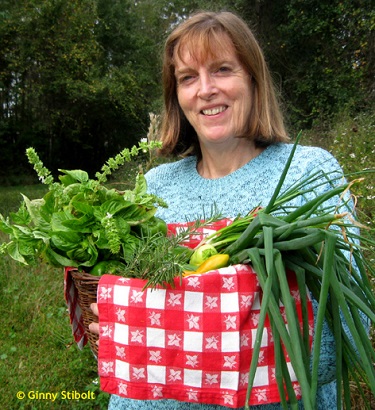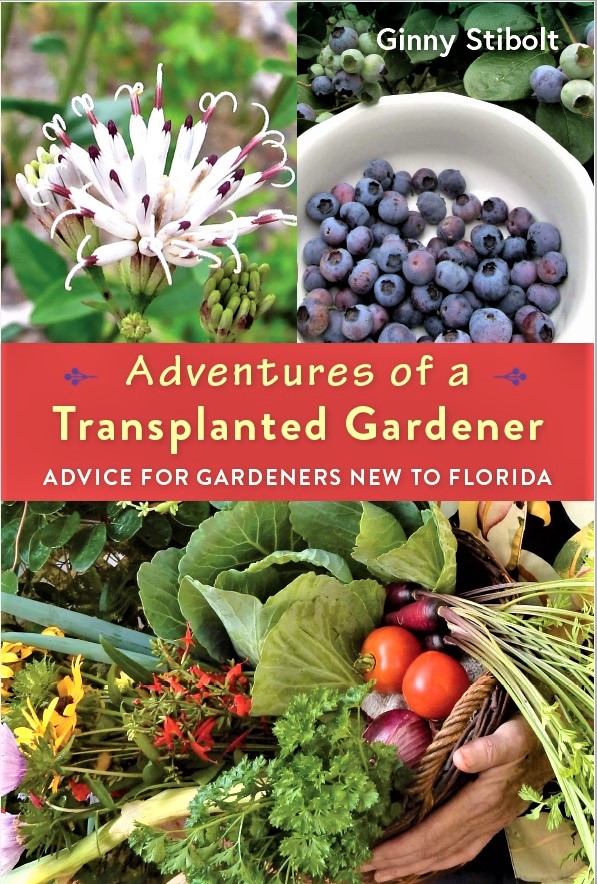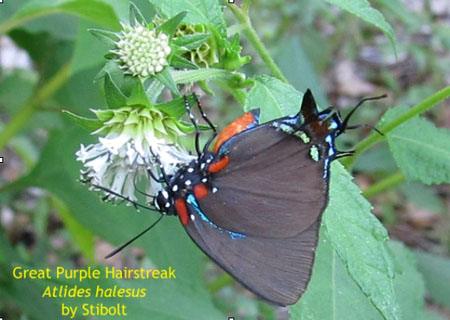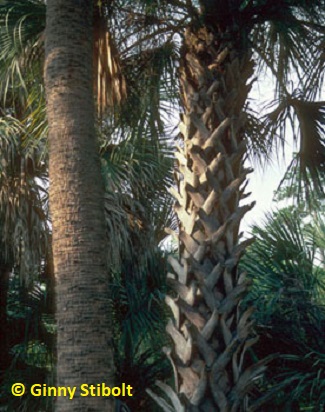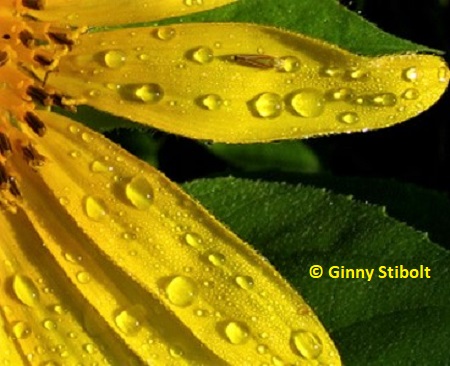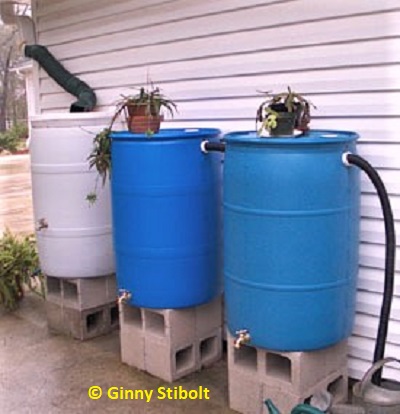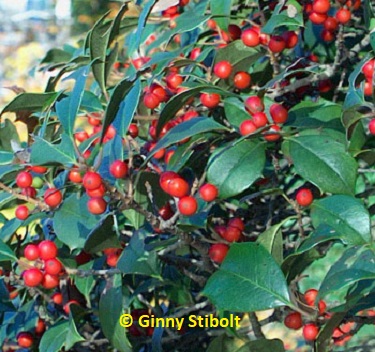Adventures of a Transplanted Gardener—Updated (2021)I'm Ginny Stibolt, a botanist and a lifelong gardener, but when my husband Dean Avery and I moved from Maryland to northeast Florida, I was flummoxed by gardening in such a different climate. I began writing columns as a community columnist for The Times Union, a newspaper in Jacksonville. I called them Adventures of a Transplanted Gardener. I also recorded more than 100 podcasts for the newspaper during this time. In addition, here on my own website, I kept a garden log with more adventures and links to my columns and other resources I thought were interesting. Read my new articles, more of my background, and my books on the About Page on my GreenGardeningMatters.com blog and connect with me on Facebook including my Sustainable Gardening for Florida page.
When the community columnist program was ended, most of my old columns were posted on Floridata.com, a plant encyclopedia, which hosted them for more than ten years. During the Covid 19 pandemic (in 2020 and 2021) I wrote a new book (my 6th), "Adventures of a Transplanted Gardener: Advice for Gardeners New to Florida." (It will be published by University Press of Florida in April 2022.) While I did not quote entire columns in the book, I do mention them and provide 2020 hindsight from a decade later. So I decided to bring them back here--to my own site where they can better tell the stories of my adventures. I have selected columns that I have referred to regularly over the years and have not included those that were "of the moment" and not particularly useful a decade later. Those old podcasts are no longer available from the Times Union website, so I've removed those and other outdated links. (Note: For some of these articles, I've made comments in parentheses like this to add updated information and/or 2020 hindsight.) Order my new book here. --> In addition, for simplicity, I've deleted the old garden log on this website—it was fun for me to go through all those old posts, but I felt that they would not useful for today's gardeners. I've arranged the selected and updated columns by topic. Enjoy! Ginny Stibolt
|
||||||
Ecosystem gardeningWorking with Mother Nature instead of against her, makes your landscape friendly to birds and pollinators. From reducing pesticides to using more native plants, everything you do makes a positive difference to wildlife. These articles cover a wide range of projects that make our landscape more of a working ecosystem. For further information, Doug Tallamy's books, "Bringing Nature Home" and "Nature's Best Hope" provide well-researched and easy-to-understand arguments for using more native plants in your yard, no matter how small. A Great Purple Hairstreak butterfly sips nectar from
- Creating backyard habitat
Edible gardensVegetable gardening in Florida is vastly different than
when I grew edibles in Maryland or New England. Now, I grow enough food
to have reduced the food expenditures for the two of us by 15%! My adventures
in her north Florida edible gardens have also led to her writing "Organic
Methods for Vegetable Gardening in Florida" with Melissa Markham
Contreras, who gardens in Miami. It was published in 2013 by University
Press of Florida. Sweet treat carrots >> - The royal herb:
sweet basil
Trees, shrubs, & vinesWoody plants play important roles in your landscape. Take
care to choose the ones with the best chance of success and use the
best practices for planting and ongoing care to increase the odds. Florida's state tree, the cabbage palm (Sabal palmetto) - Longleaf
pines Herbaceous plantsHerbaceous plants may do the most to decorate your landscape. They may
also be your worst weeds. Ginny works to sort through some of these
important landscape plants and some science on how the southern grasses
have become so efficient in the hot weather. Sustainable lawncare practices:- Reducing the lawn in your landscape
Botany and science:- A plant by
any common name Water drops on a sunflower illustrate the tendency of
water to Dealing with plants in containers:- Troublesome
spot? Convert to containers
Dealing with rainwaterWith more droughts and water shortages; you can harvest some of the rain to use for plants and compost. They'll appreciate the lack of chlorine and other additives used in our drinking water. I cover how to build your own rain barrel systems, build rain gardens to capture the extra storm water, and how to handle drainage issues with French drains and dry wells. - Climb up
my rain barrels Composting and mulchingI love wood chips as mulch. They are sustainable on so
many levels: the tree guys working in her neighborhood can dump their
load before they leave, the wood chips perform well as mulch and they
are free. - Composting
for your garden
Celebrating the holidays in the garden
Plants have always played an important part in celebrating holidays.
American holly (Ilex opaca) >> - Poinsettias
are NOT poisonous |
||||||
|
Ginny Stibolt is a life-long gardener, a botanist, a naturalist, and a garden writer. You may contact her or read more of her articles posted on her website: www.greengardeningmatters.com. |
||||||
Copyright Ginny Stibolt
